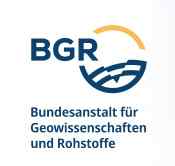 Tin, tungsten and tantalum (coltan) are mined and traded in the Great Lakes region of Africa (Angola, Burundi, Republic of Congo, Democratic Republic of Congo, Kenya, Rwanda, Central African Republic, Sudan, South Sudan, Uganda, Tanzania and Zambia). These raw materials enable the (illegal) enrichment of unlawful militias. This also puts international companies under pressure not to trade in these conflict minerals. The result is that companies are withdrawing from the region – which in turn deprives the local population of access to income.
Tin, tungsten and tantalum (coltan) are mined and traded in the Great Lakes region of Africa (Angola, Burundi, Republic of Congo, Democratic Republic of Congo, Kenya, Rwanda, Central African Republic, Sudan, South Sudan, Uganda, Tanzania and Zambia). These raw materials enable the (illegal) enrichment of unlawful militias. This also puts international companies under pressure not to trade in these conflict minerals. The result is that companies are withdrawing from the region – which in turn deprives the local population of access to income.
The federal government is supporting the Great Lakes region in establishing a transparent and credible certification system for the most important mineral raw materials (tin, tungsten and coltan). To this end, the Federal Institute for Geosciences and Natural Resources (BGR) is carrying out a long-term project. The central points of the project are:
- Through training and further education in mining supervision and inspection, national authorities are enabled to ensure the sustainability of raw material mining.
- Supporting the Great Lakes Region in implementing the regional certification mechanism.
- The sustainable implementation of the “Analytical Fingerprint” (AFP) developed by BGR.
The traceability of the supply chain is ensured based on the mineralogical and geochemical compositions of the mineral concentrates. However, this system is only used if doubts about traceability arise when the supply chain is checked by external auditors. The project will run until the end of 2024.